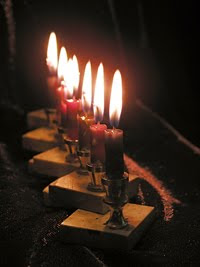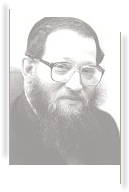
Reminder: This Sunday Rav Schwartz- Bilvavi Miskan Evneh will be speaking in an all day Seminar:
This is a link to his site, There are Shiurim and Seforim on Line to learn from.
Join the Rav, Shlit"a
on Sunday Dec. 26th in Flatbush, Brooklyn
Congregation Sheves Achim
The Flatbush Minyan 1517 Ave. H
for a One Day Intensive Seminar
for three different drashas: 12 PM, 1.15 PM, 2.30 PM
I am posting something from his site below there is so much more to gain from going to his site.
http://bilvavi.net/
(This class was delivered in a Beit Midrash called "Od Yosef Chai [Yosef is still alive]," and so, the talk is centered on this section in the Torah.)
How is it that the Torah writes Yehudah's words to the viceroy of Egypt (Bereshit 44:20) that Yosef was dead? In fact, it was untrue, so it should not be written in the Torah. The answer is that in depth, there was a kind of death. Yosef's whole essence was kavod (honor). When he was born, Rachel named him Yosef, because "Hashem gathered in (asaf) my shame." The opposite of shame is honor, so Yosef's essence was honor. Likewise, he was the conduit for the Torah of Yaakov, and by revealing that Torah, he caused Yaakov's honor to be manifest. When he was sold as a slave, his personal honor and that of his father were no more, and thus, his essence disappeared, so he was as if dead. When he became viceroy in Egypt, he was again in a position of honor, and then, indeed, "Yosef is still alive."
As long as Yosef was alive, the kavod of Yaakov was manifest. After he died, the kavod disappeared, and the enslavement of Israel began. As long as we had kavod, there could be no galut (exile). The removal of kavod is identical with galut. Geulah (redemption), though, is more than just a return of kavod, and Yosef also symbolizes the higher level of gathering in and transcending the concept of honor.
To illustrate, to shame a person is tantamount to murder, because the soul is equated with honor (Tehillim 30:13). But if a person's essence is really only honor, a disgraced person should die, because his soul, his kavod, disappears. Rather, a person is more than his kavod. The inner essence is even deeper than kavod. Kavod is deep, but it is not the deepest essence of a person. Kavod only relates to others, but does not exist at all when one is alone.
When a person lives only with kavod, he is only focused on the relationship with others. Yet one must focus on his own essence. We don't only mean that one should not do things for the sake of honor. Kavod means to be focused on the outside, and the inner life requires one not to focus on outside entities.
The gemara states that rebbi did not look outside of his four amot (cubits). The depth of this is that he did not look beyond his own place, his own existence. Looking outward means that one leaves his own personal world. Each person is unique, with his own world. When a person envies another, even another person's positive qualities, he is looking outside of his own world if he only wants the qualities because he sees them elsewhere.
The proper way is to attain a level because of a personal awareness of the value of the level. You might see people acting a certain way, or read about it in a book. But you should attain your own recognition. The gemara states that if not that the Torah were given, we would have learned alacrity from the ant. But where does the Torah teach us the quality of alacrity? The answer is that we now have an inner light with which to learn such values naturally.
The Rambam (De'ot 6:1) writes that one must live in the desert. You can live with other people and yet be as in a desert. One can live on his own, without copying anyone else. The true life is when you build your own way of life with your own personal understanding.
This is the depth of "Yosef is still alive" even now. When he died, in other words, when his level of honor disappears, the kavod is gone, but this new level is higher than kavod. On this level, one lives based on his own awareness.
The influences in this world are very strong. The values are all wrong and our thinking can become distorted. The proper way is to discover the truth on your own. Then you will receive your own life from your own neshamah. Then you will merit being like Adam before the sin. He had no one to emulate other than Hashem.
The Geulah will come when we don't copy others, but live from our own discovered truth.
Fill in the following information to join us
For info call: 516.668.6397




































































